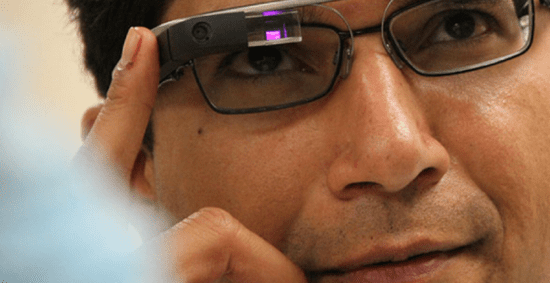Technology is continuing to change the way we view digital marketing at breakneck speed, but the future is bright for digital marketing
It’s quite apparent that technology has brought the marketing field a long way. We wouldn’t be immersed in the digital marketing field without it. However, many marketers, particularly those in small businesses, don’t recognize just how much and how often technology is changing. For that reason, they have a very difficult time keeping up, which could be their biggest marketing mistake.
“In a nutshell, we’re living in a rapidly changing world where ‘on the fly’ collaboration sessions involving voice, video, and data sharing are becoming commonplace,” says Jeremy Cioara of CBT Nuggets, a company devoted to technological advancements. “Executives and employees have their expectations set high when it comes to supporting collaborative communication within an organization.”
With the ever-present changes in data-driven marketing and technology, it’s more important than ever to have the proper training in IT and technology, even for those not working in an IT department. Technology is changing marketing at a speed that we can barely keep up with.
Most Recent Advancements
In a blink of an eye, the marketing strategy you’ve been using could become outdated. That’s why it’s important to know exactly what changes are happening now and how those changes are affecting you and your company.
Mobile Technologies
Responsive web design is popular in the digital marketing world, and the shift towards small-screen optimization is continually evolving. Perhaps most important of these advancements is the ability to seamlessly move from a call to action in an email to the landing page without slow loading times or distorted content.
Big Data and the Internet of Things
Both of these data sets are great for marketers. Thanks to the ability to collect consumer information, even without their knowledge, marketers have the knowledge necessary to make changes to their content, products, and services in order to improve the overall consumer and commercial experience.
The Future of Digital Marketing
Perhaps even more important than keeping up to date with current marketing trends is keeping up with the future of digital marketing. If you and your company can forecast the future now, you’ll have an easier time assimilating when it happens.
Wearable Technologies
When they were first introduced, wearable technologies didn’t seem like they would be successful. Now, however, it seems that they are one of the most important commodities to watch in digital marketing.
“As a digital marketing professional or business owner, you’re going to need to stay up to date and flexible,” says Anna Johansson, a featured writer on ImediaConnection. “Nobody can predict how fast these [wearable] technologies will be adopted, or how great an impact wearable devices will have.”
As the technology continues to progress, it’s extremely important for digital marketers to be prepared to market towards wearable technology, which will require even more optimisation and quick thinking than the shift to mobile devices.

Faster Everything
Studies show that the average page-load speed for retail websites today is seven seconds, which is four seconds above the ideal speed. The future shows a dire need for faster loading times in order to stay ahead of the competition. The difference is costing retailers billions. As a result, faster loading times are becoming a necessity.
Furthermore, there is a greater need for faster turnaround and immediate service in commercial business. Because of the convenience technology creates in every field, consumers are no longer willing to wait for their goods and services. If you don’t have the lightening-quick speed they want, they’ll go somewhere else.
Global Reach
Scientists and big businesses are currently working to create low-flying satellites that will bring fast, affordable broadband to even third-world countries. This means that your marketing strategy will need to reach an even further audience to accommodate the vast number of people your products and services could reach. As a result, you’ll need to come up with a separate, but equal marketing strategy to reach each individual audiences around the world.
Cultural Outreach
Because technology will soon reach around the globe, it’s integral for you to have a solid understanding of different cultures. This goes beyond learning to speak the language. It encompasses a need to understand, maybe even live among a variety of cultures, and learn their customs, religions, social views, economics, and more.
Once you understand the culture, you’ll be able to craft a marketing plan for each audience. Don’t wait to start learning about this one. Global reach will happen, and the time to act is now if you want to be ahead of the game when it comes to marketing.
Larger Focus on Marketing
A study performed earlier this year estimates that companies will be increasing their marketing budgets by an average of 80 percent over the next few years in order to keep up with changes.
This is great news for marketing departments who now have the ability to hire top talent. A budget increase will make it possible to reduce marketing employee turnover and improve overall strategies. If you want to keep up with your competitors, it might be a good idea to take a look at your marketing budget and determine if a raise is in order.
Training in current technological advancements will be the best thing you can do for keeping your marketing department up to date, and even ahead of the game in digital marketing. All in all, it’s a great way to beat out your competitors.

Thanks to
Larry Alton for sharing their advice and opinions in this post. Larry is a freelance writer, who has been published in the Huffington Post, Entrepreneur.com and the Search Engine Journal. You can follow him on
Twitter or connect on
LinkedIn.




 Thanks to
Thanks to 



